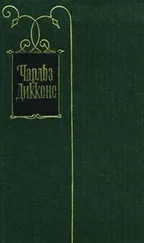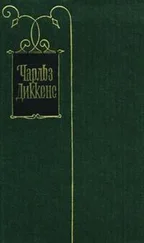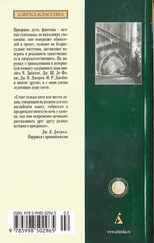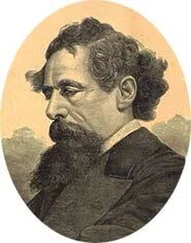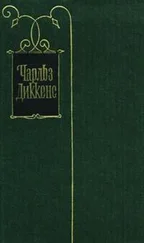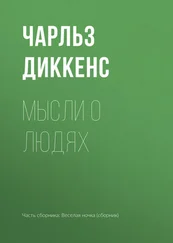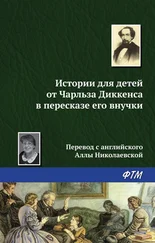Чарльз Диккенс - Pictures from Italy
Здесь есть возможность читать онлайн «Чарльз Диккенс - Pictures from Italy» — ознакомительный отрывок электронной книги совершенно бесплатно, а после прочтения отрывка купить полную версию. В некоторых случаях можно слушать аудио, скачать через торрент в формате fb2 и присутствует краткое содержание. Жанр: foreign_antique, foreign_prose, на английском языке. Описание произведения, (предисловие) а так же отзывы посетителей доступны на портале библиотеки ЛибКат.
- Название:Pictures from Italy
- Автор:
- Жанр:
- Год:неизвестен
- ISBN:нет данных
- Рейтинг книги:5 / 5. Голосов: 1
-
Избранное:Добавить в избранное
- Отзывы:
-
Ваша оценка:
- 100
- 1
- 2
- 3
- 4
- 5
Pictures from Italy: краткое содержание, описание и аннотация
Предлагаем к чтению аннотацию, описание, краткое содержание или предисловие (зависит от того, что написал сам автор книги «Pictures from Italy»). Если вы не нашли необходимую информацию о книге — напишите в комментариях, мы постараемся отыскать её.
Pictures from Italy — читать онлайн ознакомительный отрывок
Ниже представлен текст книги, разбитый по страницам. Система сохранения места последней прочитанной страницы, позволяет с удобством читать онлайн бесплатно книгу «Pictures from Italy», без необходимости каждый раз заново искать на чём Вы остановились. Поставьте закладку, и сможете в любой момент перейти на страницу, на которой закончили чтение.
Интервал:
Закладка:
The different uses to which some of these Palaces are applied, all at once, is characteristic. For instance, the English Banker (my excellent and hospitable friend) has his office in a good-sized Palazzo in the Strada Nuova. In the hall (every inch of which is elaborately painted, but which is as dirty as a police-station in London), a hook-nosed Saracen’s Head with an immense quantity of black hair (there is a man attached to it) sells walking-sticks. On the other side of the doorway, a lady with a showy handkerchief for head-dress (wife to the Saracen’s Head, I believe) sells articles of her own knitting; and sometimes flowers. A little further in, two or three blind men occasionally beg. Sometimes, they are visited by a man without legs, on a little go-cart, but who has such a fresh-coloured, lively face, and such a respectable, well-conditioned body, that he looks as if he had sunk into the ground up to his middle, or had come, but partially, up a flight of cellar-steps to speak to somebody. A little further in, a few men, perhaps, lie asleep in the middle of the day; or they may be chairmen waiting for their absent freight. If so, they have brought their chairs in with them, and there they stand also. On the left of the hall is a little room: a hatter’s shop. On the first floor, is the English bank. On the first floor also, is a whole house, and a good large residence too. Heaven knows what there may be above that; but when you are there, you have only just begun to go up-stairs. And yet, coming down-stairs again, thinking of this; and passing out at a great crazy door in the back of the hall, instead of turning the other way, to get into the street again; it bangs behind you, making the dismallest and most lonesome echoes, and you stand in a yard (the yard of the same house) which seems to have been unvisited by human foot, for a hundred years. Not a sound disturbs its repose. Not a head, thrust out of any of the grim, dark, jealous windows, within sight, makes the weeds in the cracked pavement faint of heart, by suggesting the possibility of there being hands to grub them up. Opposite to you, is a giant figure carved in stone, reclining, with an urn, upon a lofty piece of artificial rockwork; and out of the urn, dangles the fag end of a leaden pipe, which, once upon a time, poured a small torrent down the rocks. But the eye-sockets of the giant are not drier than this channel is now. He seems to have given his urn, which is nearly upside down, a final tilt; and after crying, like a sepulchral child, ‘All gone!’ to have lapsed into a stony silence.
In the streets of shops, the houses are much smaller, but of great size notwithstanding, and extremely high. They are very dirty: quite undrained, if my nose be at all reliable: and emit a peculiar fragrance, like the smell of very bad cheese, kept in very hot blankets. Notwithstanding the height of the houses, there would seem to have been a lack of room in the City, for new houses are thrust in everywhere. Wherever it has been possible to cram a tumble-down tenement into a crack or corner, in it has gone. If there be a nook or angle in the wall of a church, or a crevice in any other dead wall, of any sort, there you are sure to find some kind of habitation: looking as if it had grown there, like a fungus. Against the Government House, against the old Senate House, round about any large building, little shops stick so close, like parasite vermin to the great carcase. And for all this, look where you may: up steps, down steps, anywhere, everywhere: there are irregular houses, receding, starting forward, tumbling down, leaning against their neighbours, crippling themselves or their friends by some means or other, until one, more irregular than the rest, chokes up the way, and you can’t see any further.
One of the rottenest-looking parts of the town, I think, is down by the landing-wharf: though it may be, that its being associated with a great deal of rottenness on the evening of our arrival, has stamped it deeper in my mind. Here, again, the houses are very high, and are of an infinite variety of deformed shapes, and have (as most of the houses have) something hanging out of a great many windows, and wafting its frowsy fragrance on the breeze. Sometimes, it is a curtain; sometimes, it is a carpet; sometimes, it is a bed; sometimes, a whole line-full of clothes; but there is almost always something. Before the basement of these houses, is an arcade over the pavement: very massive, dark, and low, like an old crypt. The stone, or plaster, of which it is made, has turned quite black; and against every one of these black piles, all sorts of filth and garbage seem to accumulate spontaneously. Beneath some of the arches, the sellers of macaroni and polenta establish their stalls, which are by no means inviting. The offal of a fish-market, near at hand – that is to say, of a back lane, where people sit upon the ground and on various old bulk-heads and sheds, and sell fish when they have any to dispose of – and of a vegetable market, constructed on the same principle – are contributed to the decoration of this quarter; and as all the mercantile business is transacted here, and it is crowded all day, it has a very decided flavour about it. The Porto Franco, or Free Port (where goods brought in from foreign countries pay no duty until they are sold and taken out, as in a bonded warehouse in England), is down here also; and two portentous officials, in cocked hats, stand at the gate to search you if they choose, and to keep out Monks and Ladies. For, Sanctity as well as Beauty has been known to yield to the temptation of smuggling, and in the same way: that is to say, by concealing the smuggled property beneath the loose folds of its dress. So Sanctity and Beauty may, by no means, enter.
The streets of Genoa would be all the better for the importation of a few Priests of prepossessing appearance. Every fourth or fifth man in the streets is a Priest or a Monk; and there is pretty sure to be at least one itinerant ecclesiastic inside or outside every hackney carriage on the neighbouring roads. I have no knowledge, elsewhere, of more repulsive countenances than are to be found among these gentry. If Nature’s handwriting be at all legible, greater varieties of sloth, deceit, and intellectual torpor, could hardly be observed among any class of men in the world.
Mr. Pepys once heard a clergyman assert in his sermon, in illustration of his respect for the Priestly office, that if he could meet a Priest and angel together, he would salute the Priest first. I am rather of the opinion of Petrarch, who, when his pupil Boccaccio wrote to him in great tribulation, that he had been visited and admonished for his writings by a Carthusian Friar who claimed to be a messenger immediately commissioned by Heaven for that purpose, replied, that for his own part, he would take the liberty of testing the reality of the commission by personal observation of the Messenger’s face, eyes, forehead, behaviour, and discourse. I cannot but believe myself, from similar observation, that many unaccredited celestial messengers may be seen skulking through the streets of Genoa, or droning away their lives in other Italian towns.
Perhaps the Cappuccíni, though not a learned body, are, as an order, the best friends of the people. They seem to mingle with them more immediately, as their counsellors and comforters; and to go among them more, when they are sick; and to pry less than some other orders, into the secrets of families, for the purpose of establishing a baleful ascendency over their weaker members; and to be influenced by a less fierce desire to make converts, and once made, to let them go to ruin, soul and body. They may be seen, in their coarse dress, in all parts of the town at all times, and begging in the markets early in the morning. The Jesuits too, muster strong in the streets, and go slinking noiselessly about, in pairs, like black cats.
Читать дальшеИнтервал:
Закладка:
Похожие книги на «Pictures from Italy»
Представляем Вашему вниманию похожие книги на «Pictures from Italy» списком для выбора. Мы отобрали схожую по названию и смыслу литературу в надежде предоставить читателям больше вариантов отыскать новые, интересные, ещё непрочитанные произведения.
Обсуждение, отзывы о книге «Pictures from Italy» и просто собственные мнения читателей. Оставьте ваши комментарии, напишите, что Вы думаете о произведении, его смысле или главных героях. Укажите что конкретно понравилось, а что нет, и почему Вы так считаете.

